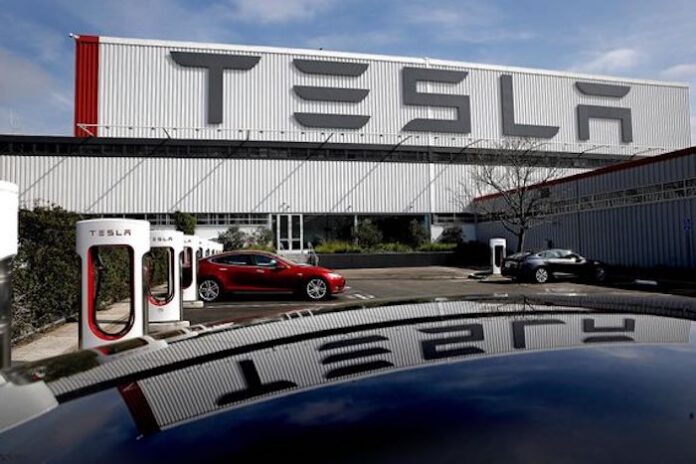Tesla CEO Elon Musk stunned investors and analysts with plans to grow vehicle sales by 30% next year, buoyed by a new, cheaper model and enthusiasm for self-driving software, but delivering on that promise would surprise much of Wall Street.
Musk’s 2025 forecast and improving profit margins sparked the biggest jump in Tesla shares since May 2013, when the company posted its first quarterly profit, and encouraged investors that, even as he works on a years-out robotaxi, he is focusing on the basics of his business.
Musk faces flagging demand for Tesla’s sparse and aging lineup, a global slowdown in EV sales growth, and rising competition in key markets such as China and the U.S., analysts and industry experts said.
His forecast of 20-30% growth, after a negligible bump this year, is roughly double what Wall Street has been expecting. Deutsche Bank, after Musk’s forecast, predicted 12% growth next year, even with a sub-$30,000 new model and a refreshed Model Y. RBC analysts maintained their 13% growth forecast.
“There’s hardly an analyst anywhere in the world who’s going to agree with 20% growth in the company next year” even with a lower cost model, said Sam Fiorani, vice president at research firm AutoForecast Solutions. “Tesla, aside from this quarter, has been seeing a slowdown in its demand for its products. And one quarter is not a trend.”
Tesla did not respond to a request for comment.
Global electric vehicle sales have fallen short of lofty expectations and growth has moderated in recent years. But competition is heating up.
They further said the German auto giant wants to shrink its remaining plants in Europe’s biggest economy.
The International Energy Agency estimates global EV sales to grow about 23% to 17 million this year, down from a 35% rise last year and over 50% growth in 2021.
China is the biggest market, accounting for nearly two-thirds of the sales this year, followed by Europe with over a fifth and the U.S. with about 10% of sales.
While U.S. tariffs are likely to keep Chinese models out of Tesla’s main market, players including China’s BYD dominate their domestic market and are targeting Europe. U.S. carmakers fear being undercut by Chinese prices, and the focus of Tesla’s next model is its relatively low price.”Being able to beat BYD at its own game, I just would say that to me is a non-trivial undertaking,” said Pat Ryan, founder of car shopping platform CoPilot. “It’s really strategic for them, but it’s not going to be easy.”Affordability for customers will continue to be a challenge next year, Ryan said, with auto loans expected to be expensive despite interest rate cuts. That will be made worse if Donald Trump becomes U.S. President and cuts tax incentives for EV buyers, which are as much as $7,500 a vehicle, Ryan said.
Tesla’s own lineup includes its best-selling Model Y, which is due for a refresh and the iconoclastic, trapezoidal Cybertruck pickup, which is seeing rising production.
Musk has also increased promotions and marketing for Tesla’s advanced driver assist software – called Full Self-Driving – expecting adoption of the technology to stimulate sales in 2025.
Cybertruck production has hit volume levels and is profitable, in a good sign for next year, but analysts including Bernstein, which forecasts 16% growing next year, say 2025 depends on the design of the mystery affordable cars and how fast that production can ramp up.
Following years of rapid growth, Tesla sales declined in the first two quarters of 2024. Incentives and financing deals have lured some back, but Musk has said Tesla will deliver only a few more vehicles this year than the record 1.8 million in 2023.
Musk himself, a powerful personality, has turned off some potential buyers as controversies surrounding his increasingly right-wing politics and public statements weigh on Tesla’s brand and demand. Nearly a third of consumers surveyed by Edmunds in August said they were less likely to consider purchasing a Tesla because of Elon Musk.
Investors are focusing on deliveries, margins and the new affordable cars, watching quarter by quarter said Will Rhind, CEO of global ETF issuer GraniteShares. Shareholders, as he put it, will be “making sure that the company delivers on what it says it’s going to deliver on.”























